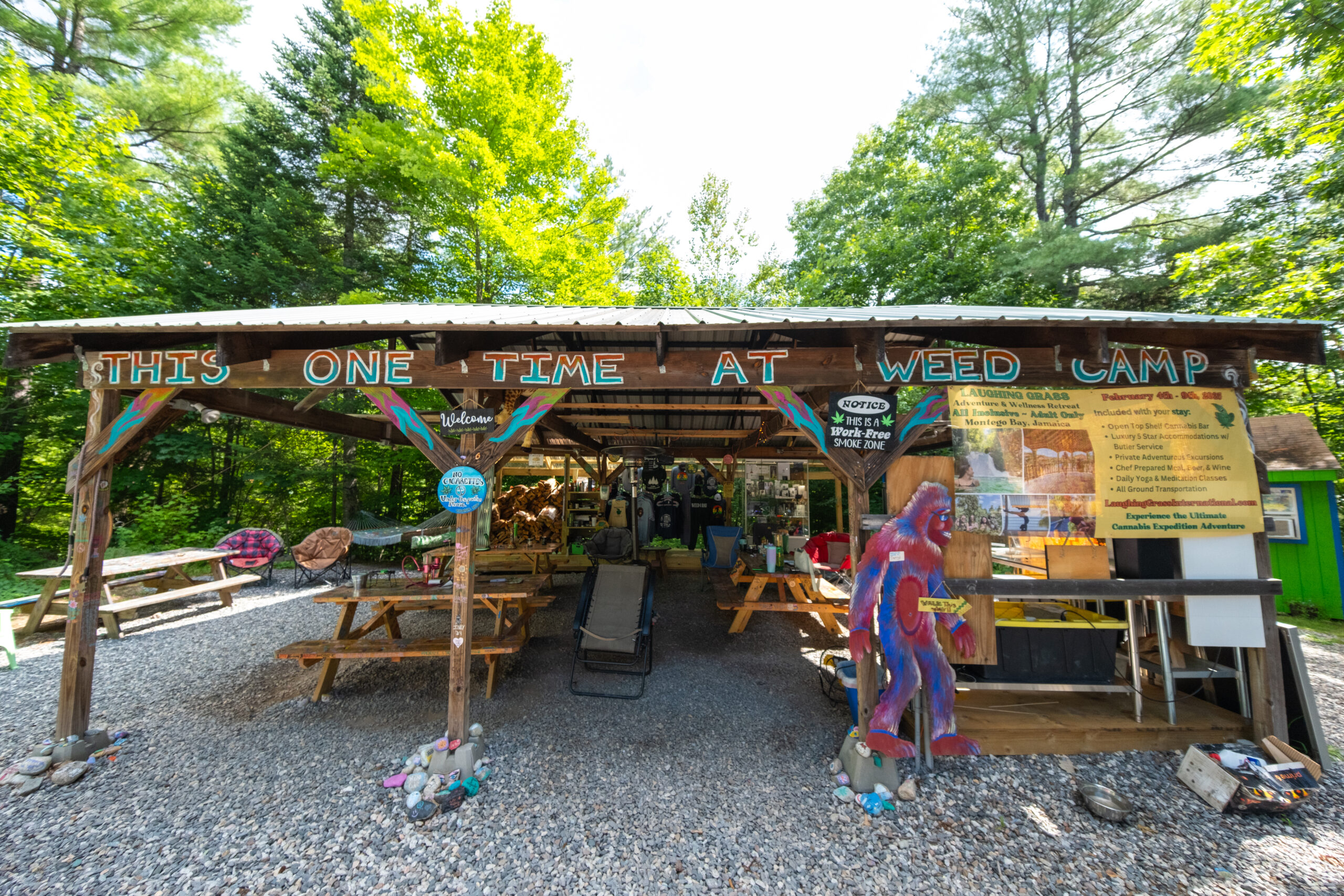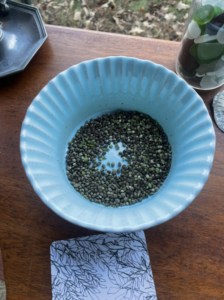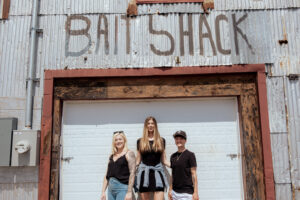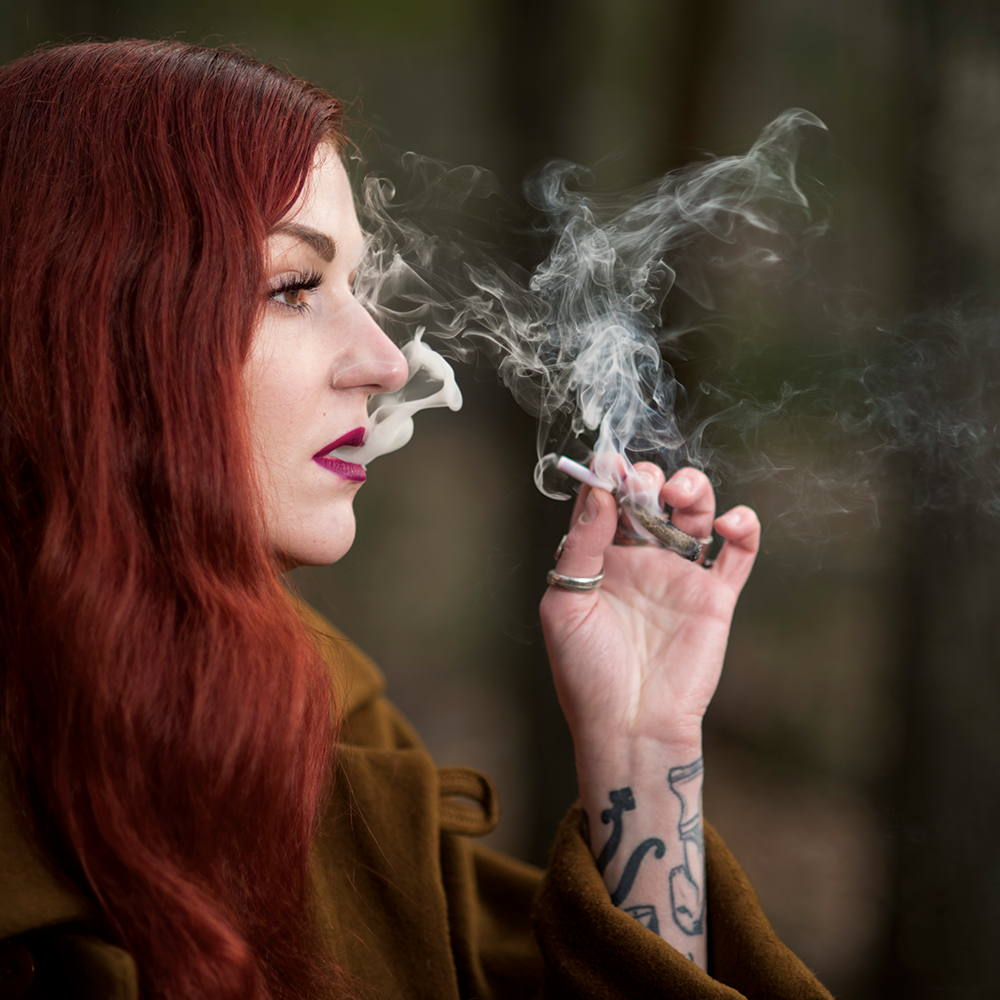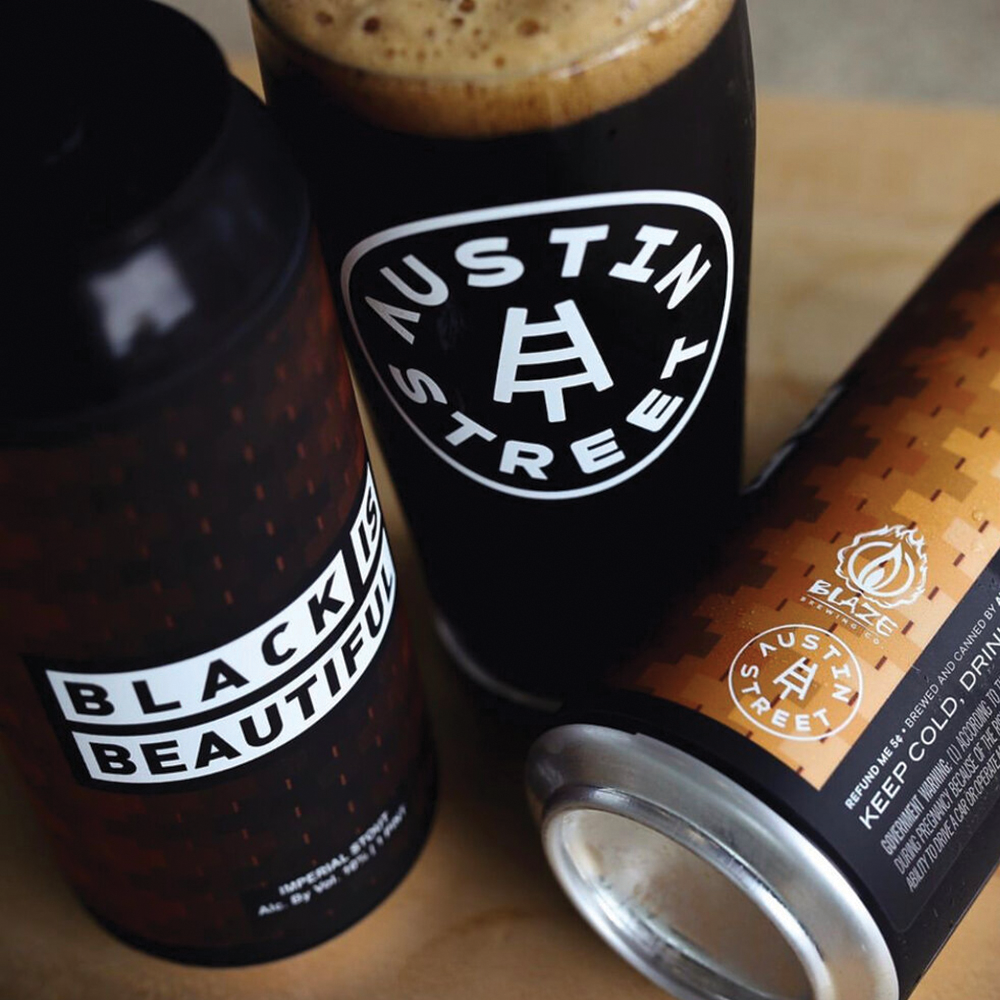Written By: Dan Padell | Photos by: Cody DeLong
The confirmation email warns, “Put the name into your gps, not the address.” Despite maybe being a bit hard to find, though, a Lakes Region campground is making a name for itself by offering something nobody else can boast: Your stash is welcome to come along. The concept is pretty simple — maybe it’s one we’ve all thought of at some point in the budding days of our cannabis appreciation — and now one woman has turned her vision of a summer camp for adults into Maine’s premiere 420-friendly camping experience.
“Most people just dream it,” says Trinity Madison, owner and operator of Camp Laughing Grass, setting down a well-appointed tray of edibles and concentrates provided by one of many local dispensaries. It’s 4:20, and it’s time for the campground’s daily celebration of all things cannabis.
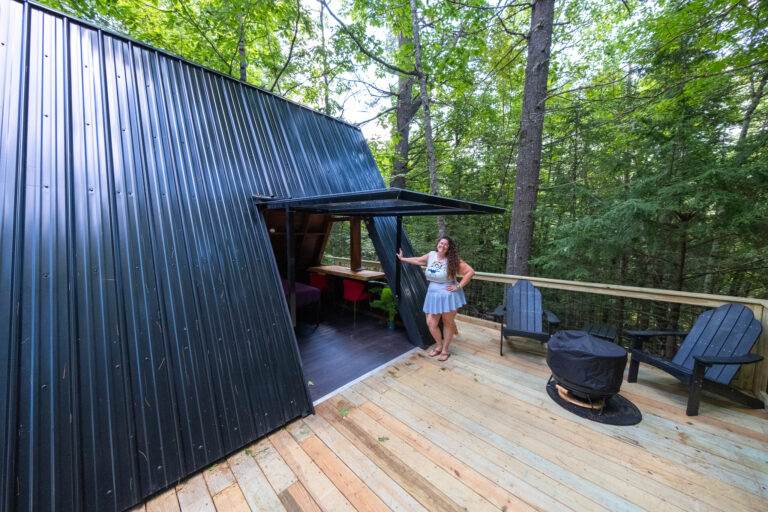
Guests wander up to the main pavilion, to picnic tables painted and decorated by those who have chosen to leave their mark at weed camp. They’ve come to share stories and a session with the woman who worked and fought hard to create an oasis for stoners to come and enjoy their stash in the great Maine outdoors, without having to worry about where their clouds might be drifting.
You’ll find Camp Laughing Grass hidden in the woods of Harrison, about 10 minutes north of 302, down a winding, sandy driveway only a stone’s throw from the Crooked River. And it’s new, only having officially opened in 2020 amid upheaval and new demands. “It’s constantly evolving,” Madison explains, “because in cannabis tourism, there’s no blueprint.”
Check-in is at a picnic table under the pavilion’s corrugated rooftop, among a dozen bongs, rolling trays, and other smoking implements. “Most of my camping experience has been in state parks, so most of our rules resemble those of the state parks I frequent,” she says. Quiet hours, mind your coolers, pack-in-pack-out … the usual slate of common-sense behavior, but with the glaring and welcome exception that your trip won’t be cut short if the wrong person detects your dank.
So, what’s the secret to running a weed camp, anyway? “Create an environment that encourages people to meet,” she says.
At one of the nearby tables, a pair of newlyweds on their honeymoon are setting up the board for “Ganjaland,” pulled from the games stacked in a nearby cubby. At another, groups of just-arrived campers get to know one another over canvases and paint sets. Skunky clouds waft with the breeze, yet nobody has to look over their shoulder for nosy neighbors or busybody caretakers.
“There’s a lot of love here,” Madison muses, “it’s so beautiful watching friendships form, prosper and continue after camp.”
Camp Laughing Grass sits on around 17 acres beside a bend in the river, with 15 reservable accommodations in all. A cluster of five small, rustic cabins share a communal fire pit up at the main pavilion. “It’s where we host our 4:20, it’s where we have our breakfast. If you want to be right in party central, you want to stay in the cabins,” Madison says.
The camping area is down the hill overlooking the riverside, offering a quieter and more private setting among the trees. The tent and glamping sites reflect that state-park upbringing, with their own picnic tables, firepits, and charcoal grills. “The atmosphere is very friendly, similar to a small festival without the music,” Madison says.
That laid-back experience seems to be sorely missed when campers return to those less-lenient state campgrounds, and it keeps them coming back to weed camp.
“So many have turned into repeat customers, quite a few come multiple times a year,” she says, “people have even coordinated when they come back, to be able to hang out again.”
The story hasn’t always been so copacetic, though, and Madison has faced more than a few obstacles in her quest to carve out a space for herself in a shifting legal framework that isn’t always welcoming, and in an industry where men are still largely overrepresented.
“I’ve been in this industry for more than 20 years and it has for the most part been a boys club,” she observes. “Ten years ago, it was hard to get recognized.” But that’s begun to change, with more women joining the growing marketplace than ever before.
“Nowadays,” she says, “the cannabis industry feels like it’s one of the few industries where women have a fighting shot at success. There are a lot of women in this industry and we’re killing it.”
The first concept of camp took the form of a “cannabis-themed summer camp for adults” that Madison describes as, “just like you’d remember going to summer camp as a kid, but with weed.” After purchasing the perfect mountain-top location, however, a partner backed out and the dream couldn’t go forward. “I was pretty devastated,” she says, “I was so ready.”
Her ambitions wouldn’t be snuffed out so easily, and before long, a new vision for a “bud-and-breakfast” began to take shape: The Laughing Grass Inn. “At the time I had an edible company, and I really wanted to serve people fresh edibles,” she says. “I partnered up with a local inn and I put together a bud and breakfast event.”
But she hadn’t expected the municipal backlash it quickly attracted: “The town lost its mind.”
An emergency town meeting was called in Cornish. “They passed a moratorium and made my type of business illegal in the historical downtown,” Madison says. After investing all of her resources into trying to bring her new concept to an eager public, there was no feasible way to pivot toward appeasing local boards rife with outdated attitudes. “There was no money left to fight.”
Things were looking bleak for Trinity’s dream. “That hurt,” she recalls, “and I ran away for a while.”
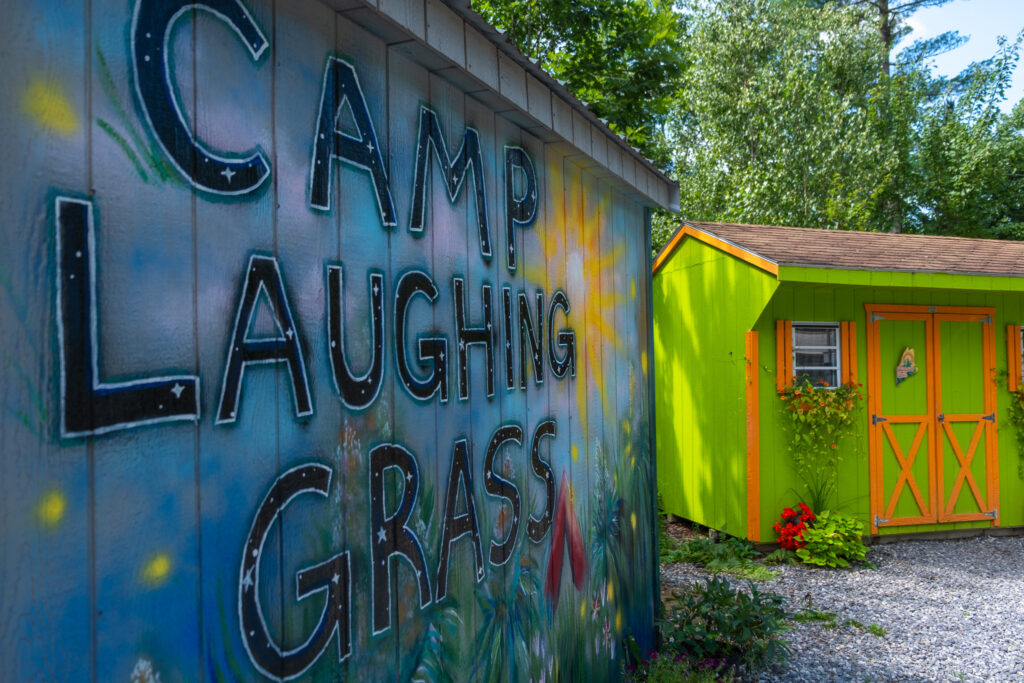
Discouraged but not defeated, she went back to the drawing board and started looking for a new and welcoming place to plant her weed camp. “A year later,” she says, “a friend shows me this property and is like, ‘This is perfect for camp, you should do this!’”
Trinity was ready to try again. “I jumped on it,” she says, “I went into the town office and asked a bunch of very vague questions to get a feel if they were cannabis friendly.” She’d learned hard lessons, and wouldn’t be taking any chances this time. “I was satisfied with what I heard. This time the town was on my side.” Camp Laughing Grass had finally found its forever home.
And word seems to have gotten out. The hard work, the sweat and the tears has finally paid off, and it’s hard to argue with the results. By the first day of summer this year, reservations had mostly sold out through the season’s end.
“We’ve had guests from all over,” Madison says, and some timely social media exposure has only increased demand. “We went viral on TikTok last year and that brought in people from all over the country, from Canada, even as far as Brazil.”
Things are looking bright for the future of 420-friendly camping; the proof lies in the sawdust collecting below the new A-frame cabin that’s going up.
“I don’t want to give too much away, I want there to be surprises,” Trinity says while riffing on her plans and ideas for Camp Laughing Grass. “Next year, we already have our building permit,” she continues, “we’re going to build a treehouse. I can’t do anything but the most epic treehouse anyone’s ever seen.”
Maybe we’ve all thought about it — a sandy spot beside a river, making friends over a picnic table and recapturing that old-school summer camp vibe, a place to light up in peace and sleep under the stars.
“Camp found something that worked.” says Trinity, gathering up empty jars and pouches leftover from the day’s 4:20 gathering. “It’s really good here.”’
WEB: www.camplaughinggrass.com

